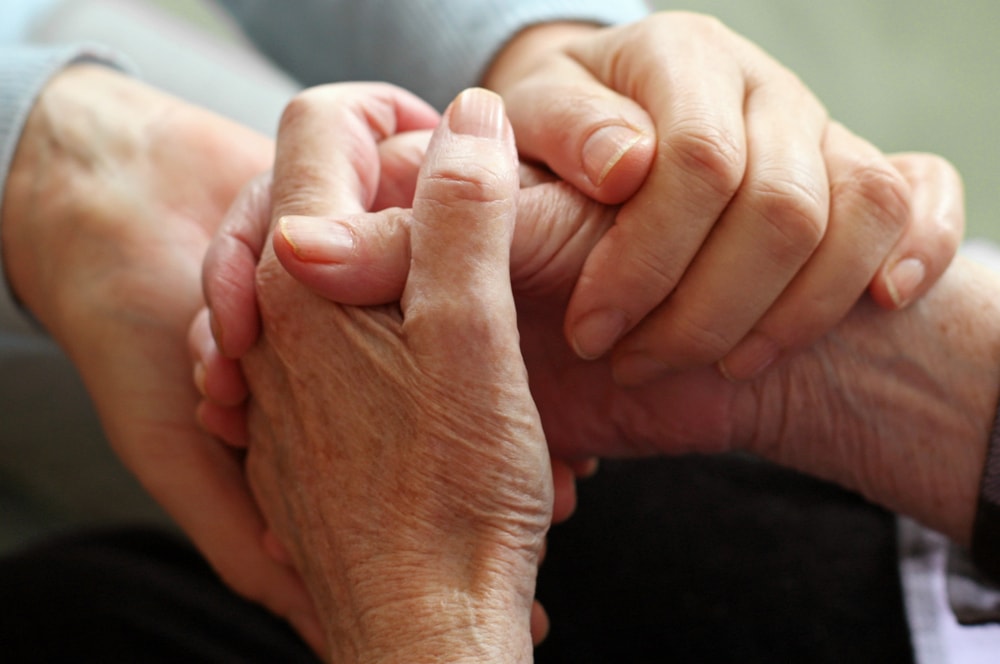The pandemic has created unusually complicated death and grief circumstances for many people personally affected by COVID-19. If someone you love has died from the novel coronavirus, you have certain “rights” that no one can take away from you. This list is intended both to empower you to heal in ways that work for you, and to decide how others can and cannot help.
1. You have the right to experience your own unique grief.
While many people are experiencing COVID-related loss, no one else will grieve in exactly the same way you do. So, when you turn to others for help, don’t allow them to tell what you should or should not be feeling.
2. You have the right to talk about the death and your grief.
Talking about the death and your grief will help you heal. Seek out others who will allow you to talk as much as you want, as often as you want, about what happened. If at times you don’t feel like talking, you also have the right to be silent.
3. You have the right to feel a multitude of emotions.
Shock, disbelief, confusion, anger, fear, and guilt are just a few of the feelings you might experience as part of your grief journey. Others may tell you that some of your feelings are wrong or not helpful. Don’t take these judgmental responses to heart. Instead, find listeners who will accept your feelings without condition.
4. You have the right to be tolerant of your physical and emotional limits.
Your feelings of loss and sadness will probably leave you feeling fatigued. Respect what your body and mind are telling you. Get daily rest. Eat balanced meals. And don’t allow others to push you into doing things you don’t feel ready to do.
5. You have the right to experience “griefbursts.”
Sometimes, out of nowhere, a powerful surge of grief may overcome you. This can be frightening, but it is normal and natural. Find someone who understands and will let you talk it out.
6. You have the right to make use of ritual.
Death rituals such as funerals not only help you truly acknowledge a death and express your necessary feelings, but they also bring friends and family together to support one another. Funerals are especially important in circumstances in which you could not be with the dying person or view the body. If pandemic restrictions prevented a meaningful funeral shortly after the death, you have the right to have one or more gatherings in the months to come.
7. You have the right to embrace your spirituality.
If faith is a part of your life, express it in ways that seem appropriate to you. Allow yourself to be around people who understand and support your religious beliefs. If you feel angry at God, find someone to talk with who won’t be critical of your feelings of hurt and abandonment.
 8. You have the right to search for meaning.
8. You have the right to search for meaning.
You may find yourself asking, “Why did he or she die? Why this way? Why now?” Some of your questions may have answers, but some may not. And watch out for the clichéd responses some people may give you. Comments like, “It was God’s will” or “Think of what you still have to be thankful for” are not helpful, and you do not have to accept them.
9. You have the right to reach out for support.
During the pandemic, many families and close friends have been separated from one another. This has made death and grief even harder than they already are. You have the right to reach out for support with video calls, phone calls, and other forms of technology every day. You also have the right to gather in person as soon as it is safe.
 10. You have the right to move toward your grief and heal.
10. You have the right to move toward your grief and heal.
Your grief has been complicated by extremely difficult circumstances, and reconciling it will not happen quickly. Be patient and gentle with yourself, and avoid people who are impatient and intolerant with you. The more you actively embrace and express your grief—bit by bit, day by day—the more momentum you will achieve toward healing.
About the Author
Dr. Alan Wolfelt is an author and educator on the topic of healing in grief. He serves as Director of the Center for Loss and Life Transition and is on the faculty at the University of Colorado Medical School’s Department of Family Medicine. Dr. Wolfelt has written many compassionate, bestselling books designed to help people mourn well so they can continue to love and live well, including Understanding Your Grief, The Mourner’s Book of Hope, and Grief One Day at a Time. Visit www.centerforloss.com to learn more about the natural and necessary process of grief and mourning.






